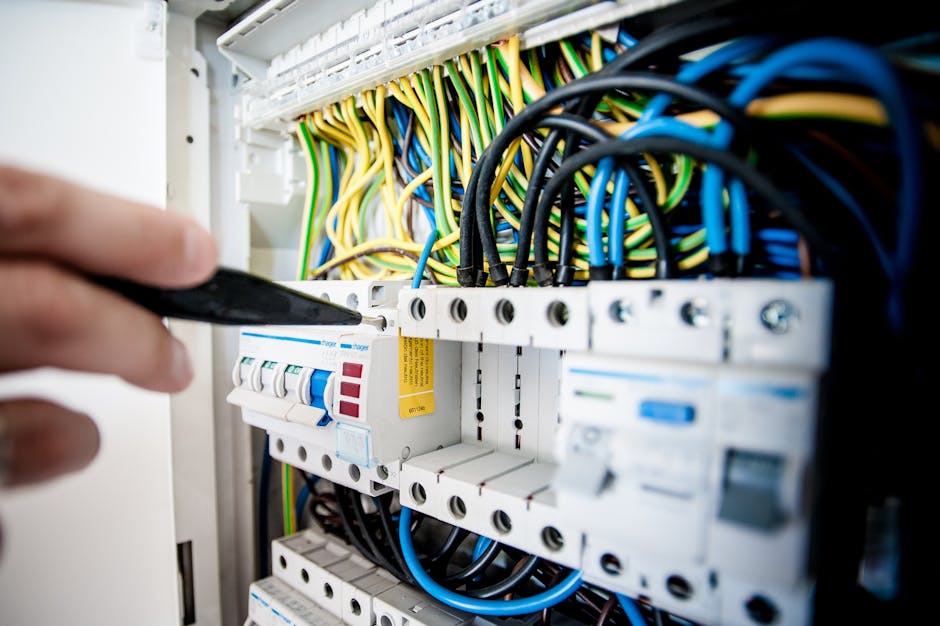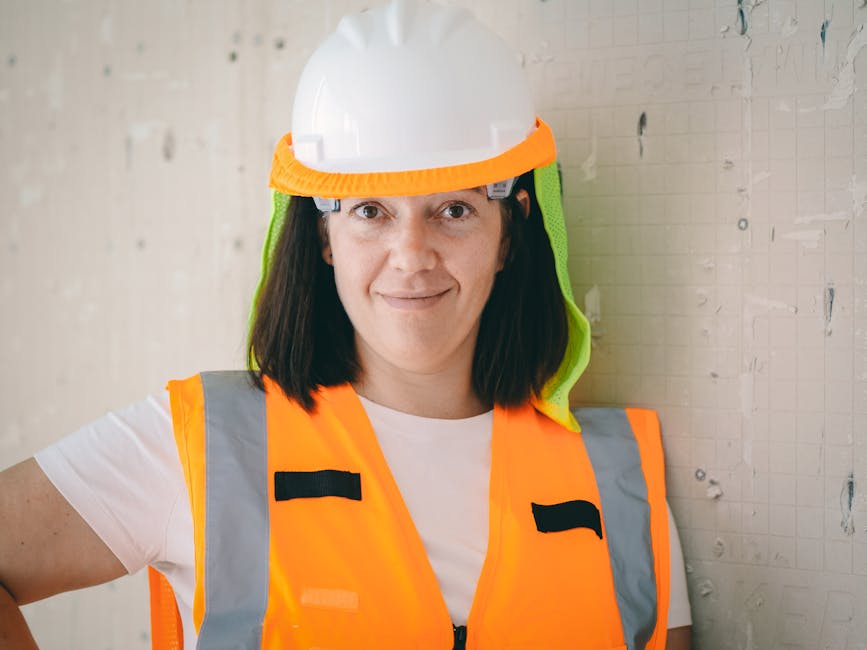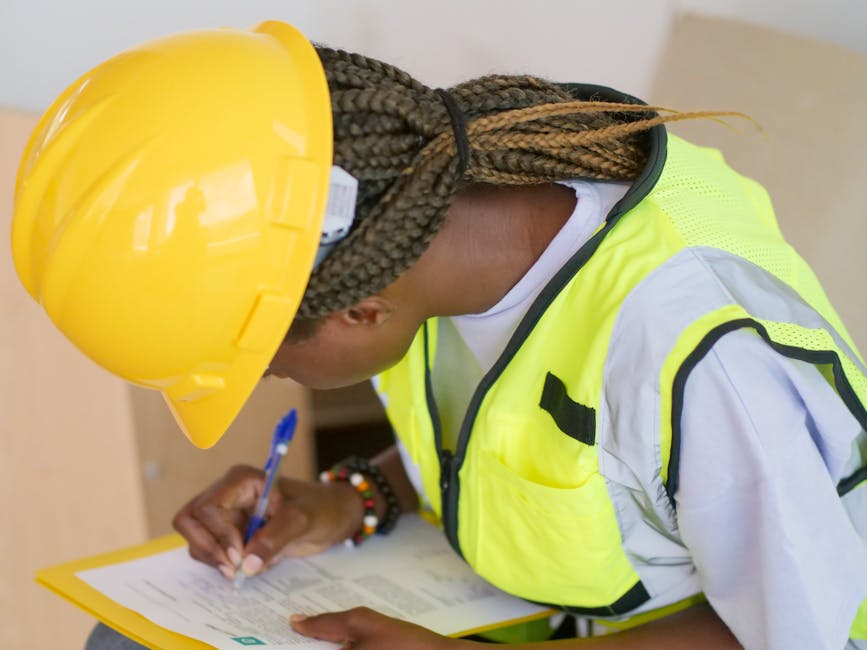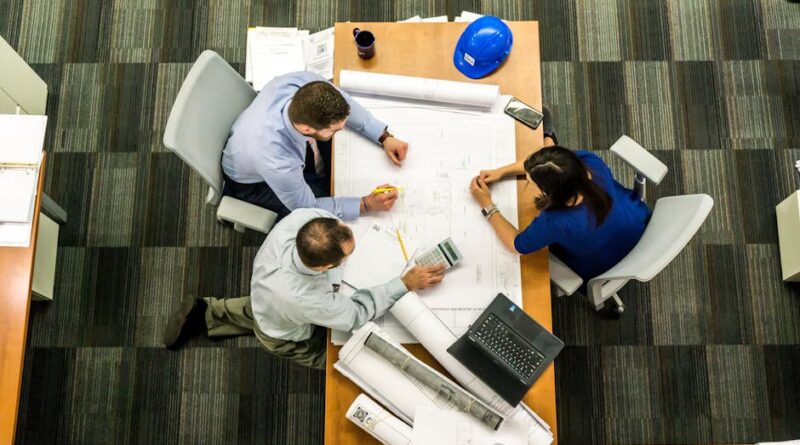The Role of AI in Construction Management
Did you know that the construction industry is one of the least digitized sectors? This might surprise you, especially since we often hear about groundbreaking technologies. But change is here, and it’s called Artificial Intelligence (AI). AI is stepping into the construction world, making projects smarter, faster, and safer.
In this article, well explore how AI transforms construction management. Well answer your questions, break down complex terms, and provide relatable examples. Lets dive in!
What is AI in Construction Management?

AI refers to computer systems that can perform tasks typically requiring human intelligence. This includes problem-solving, learning from experience, and understanding natural language.
In construction management, AI helps with:
- Project planning
- Resource management
- Safety monitoring
- Cost estimation
Think of it as a smart assistant that can analyze data and make suggestions to improve efficiency.
How Does AI Improve Project Planning?

Planning a construction project can be complex. There are timelines, costs, and numerous tasks to coordinate. AI steps in to simplify this process.
For instance, AI can analyze past project data to predict how long similar tasks will take. This helps project managers set realistic deadlines. A study found that projects using AI for planning could be completed up to 20% faster.
Imagine planning a road trip. If you know how long each leg of the journey usually takes, you can set a better travel schedule. AI does this for construction projects.
Can AI Help with Resource Management?

Absolutely! Managing resources is crucial in construction. This includes people, materials, and equipment. AI helps ensure that everything is used efficiently.
For example, AI can track equipment usage. If a piece of machinery sits idle, the system alerts managers. This way, companies can avoid wasting money on unused equipment.
Also, AI can predict when materials will run out based on project timelines. This prevents delays due to shortages. By keeping resources in check, companies save time and money.
How Does AI Enhance Safety on Job Sites?

Safety is a top priority on construction sites. AI technology plays a significant role in keeping workers safe.
For instance, AI-powered cameras can monitor job sites. They detect hazardous conditions, such as workers not wearing helmets or equipment being used incorrectly. When a potential danger arises, the system can send real-time alerts to site managers.
This proactive approach helps to prevent accidents before they happen. According to the National Safety Council, job site injuries can be reduced by up to 30% with AI monitoring.
What About Cost Estimation?
Estimating costs accurately is essential for any construction project. AI can assist in this area, too.
Traditionally, cost estimation relies on historical data and human judgment. While this method works, it can be flawed. AI uses complex algorithms to analyze various factors, such as material prices, labor costs, and project scope.
For example, if a construction manager is building a new school, AI can analyze data from similar projects. It can provide a more accurate budget based on trends and patterns it identifies. This way, companies can avoid financial surprises later on.
What Are the Common Misconceptions About AI?
There are several myths that can cloud our understanding of AI in construction:
- AI will replace human workers: Many fear that AI will take over jobs. Instead, it acts as a tool to assist workers, making their jobs easier and safer.
- AI is too complicated for small firms: While it may sound complex, there are user-friendly AI solutions designed for companies of all sizes.
- AI is only useful for large projects: AI can benefit projects of any scale. Small firms can also save time and money by using AI tools.
Understanding these misconceptions helps construction professionals embrace AI’s potential.
What Are Some Real-Life Examples of AI in Construction?
Several companies are already harnessing the power of AI in innovative ways:
- Built Robotics: This company creates autonomous construction equipment. Their bulldozers and excavators can operate without human intervention, saving time and labor costs.
- Doxel: Using AI and robotics, Doxel tracks progress on construction sites. It provides real-time updates and helps keep projects on schedule.
- PlanGrid: This software uses AI to streamline project management. It allows teams to collaborate seamlessly by sharing blueprints and updates in real time.
These examples showcase how AI is making a significant impact in the industry.
How Can Companies Get Started with AI?
For construction companies ready to embrace AI, here are some steps to consider:
- Assess needs: Identify areas where AI could improve efficiency.
- Research tools: Look for AI solutions that fit your companys size and budget.
- Start small: Implement AI in one area before expanding it’s use across projects.
- Train staff: Ensure employees know how to use AI tools effectively.
- Evaluate results: Regularly review how AI is impacting project management and make adjustments as needed.
Taking these steps can help companies leverage AIs benefits in construction management.
what’s Next for AI in Construction?
The future of AI in construction looks promising. As technology evolves, we can expect even more innovations. Experts predict that AI will continue to enhance project planning, safety, and efficiency.
For instance, AI may soon help with virtual reality (VR) tours of job sites. This would allow stakeholders to visualize projects before they begin, improving decision-making.
Additionally, as more data becomes available, AIs ability to analyze information will only improve. This means better predictions and more accurate cost estimates for future projects.
Conclusion: Embracing AI for a Better Future in Construction
AI is transforming construction management, making it smarter and more efficient. From improving project planning to enhancing safety, the benefits are clear.
As the industry continues to embrace AI, companies that adapt will thrive. They will save time and money while completing projects safely and effectively.
So, whether you’re a project manager, site supervisor, or owner, consider how AI can help you. Start small, explore tools, and be open to changes. The construction industry is evolving, and you don’t want to miss out!
For more information on digital transformation in construction, check out this article from McKinsey on [Construction’s Digital Future](https://www.mckinsey.com/industries/construction/our-insights/constructions-digital-future).



